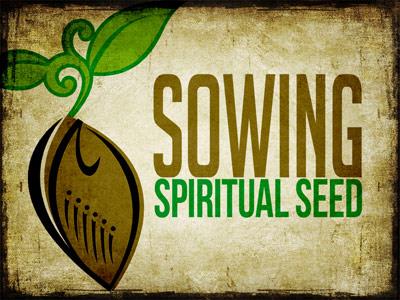-
Who Is This Man Jesus – A Parable Series
Contributed by Floyd Johnson on Nov 28, 2017 (message contributor)
Summary: This is the fourth in a series examining the person of Christ. This week, we look at the only parable found only in the book of Mark.
Intro.: I am not a farmer. I have a black thumb.
1. I have a tough job growing grass
2. But God has called me to be a farmer – not of plants, but of lives
3. I plant seeds, I let God do the work, and I then I get to see enjoy the benefits of my work
4. This is the pattern that Jesus describes in Mark 4:26-29
Read: Read Mark 4:26-29
Pray
Trans:
1. I always thought that Mark’s gospel was important – it was the first one written, the once most closely connected to the life of Christ. Matthew and Luke used Mark as a resource.
2. Mark did not know that other writers would come along later – so it was important to write something down.
3. Tradition tells us that Mark worked closely with Peter as he wrote – using Peter’s stories and narratives as his primary source material.
4. As a gospel – it sets the foundation for other gospels.
5. This morning we look at one of Jesus’ 40 parable. I chose today’s passage for one reason only – it is the only parable that occurs only in Mark. As you read through the other parables, you will find that many of them are repeated in more than one Gospel.
T.S. Studying Mark 4:26-29 allows us to look for the three major keys to understanding a parable.
I. The parable tells a story
(Ill.) I am a story teller. As I lecture during the course of a semester, I will weave stories as I present my material. Some of the stories are the same, semester after semester; others are new or remembered even as I present my material.
A. Jesus was a story teller. We don’t call them stories – we call them parables. But at the heart of each parable is a story. A story that his listeners could attach themselves to and claim, at least partially, as their own.
B. In the 1st century, the men and women that listened to Jesus knew something about farming. In fact this is the second story that Jesus has told about farming – immediately preceding the parable for seeds is the parable of the four soils. They knew farming.
C. They knew what it was to sow seed – it was something that, except in very rare circumstances, was done only once each season. The sower had to plant the seeds – and then wait for the miracle of growth to occur.
D. The words in Jesus’ story convey His understanding of that process – the good news of the kingdom was given to each of us by someone.
(Ill.) I was reminded this week that I am here because Jesus shared the good news with 12 men. They shared it with others, who shared it with other – the process continued for the last 2000 years till somebody shared the good news with me. The seed was planted and, by the Grace of God, grew.
II. The parable has a lesson
A. People tell stories for a variety of reasons. But Jesus’ stories (at least the recorded ones) had a purpose
B. But not every one understood the purpose of Jesus’ parables. Jesus’ parables are understood only in the context of the rest of his life. They never conveyed truth that contradicted the rest of his teaching.
C. The seed had been sowed – now came the easy part. The farmer, having sowed his seed, had to leave it alone.
D. The farmer doesn’t understand how it happens, but out of that seed, grew the plants that would eventually lead to a healthy harvest.
(Ill.) The Greek work is “automate” – the only other place that the word is used is when Peter is locked into a prison in Jerusalem. He was about to be killed as a martyr, but he was visited by an angel. He is sleeping between two soldiers The angel woke him told him to get up and leave the prison – the prison door opens all by itself - it is the same word “Automate”. The same God who opened that door for Peter, is the same God who is in the business of growing our spiritual lives.
III. The parable requires a response. Mark 4:39
A. I suppose that we could stop there – good story, good lesson. Let’s get on with life.
B. Yet when Christ speaks – there is an expetation that we will respond to His requirements.
C. As believers we are being prepared – not just to meet our Lord – but to serve our Lord
D. The seed is harvested – and it needs to be replanted for the next generation of growth. But this is even this waiting can be hard work. It takes patience to wait and see how God is working. There is a piece in most of us that want God to work in our time frame – rather we need to let Him work in His own time.

 Sermon Central
Sermon Central



